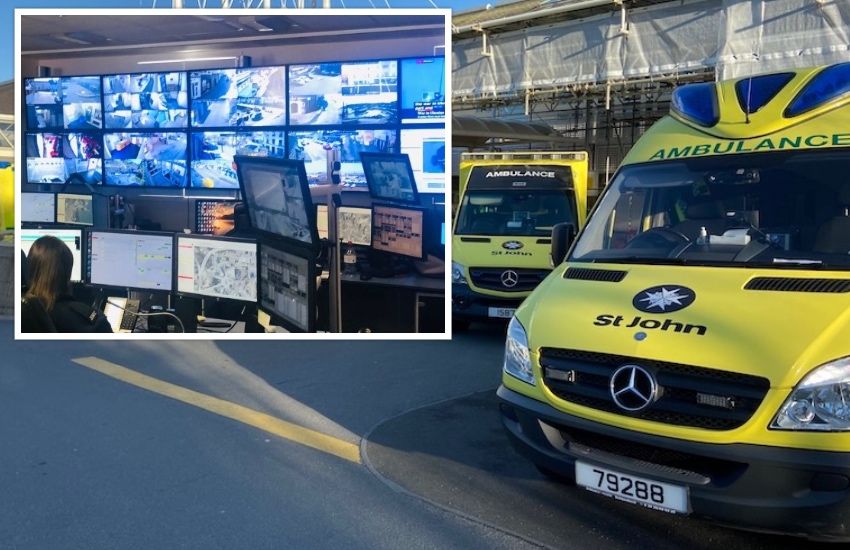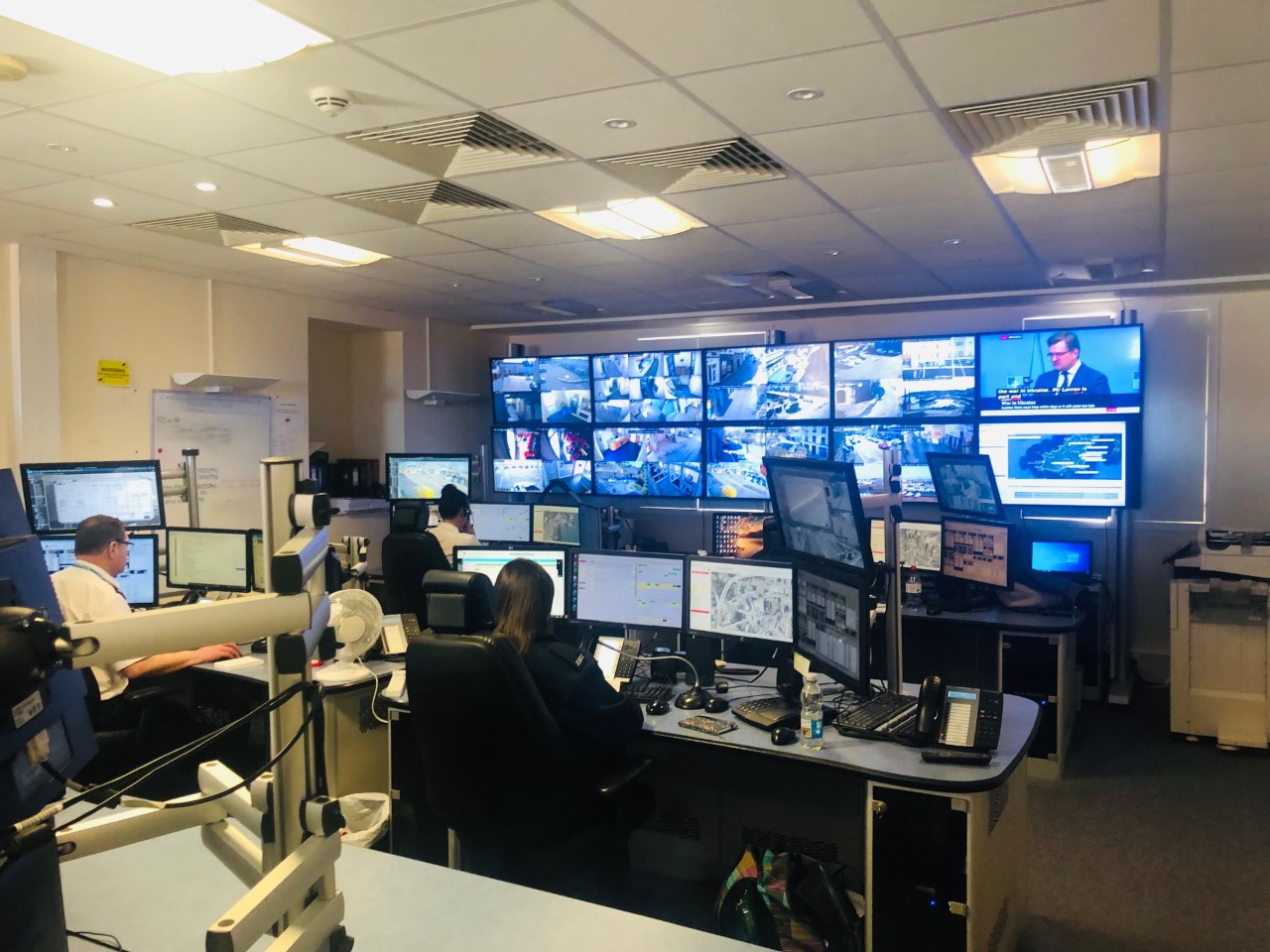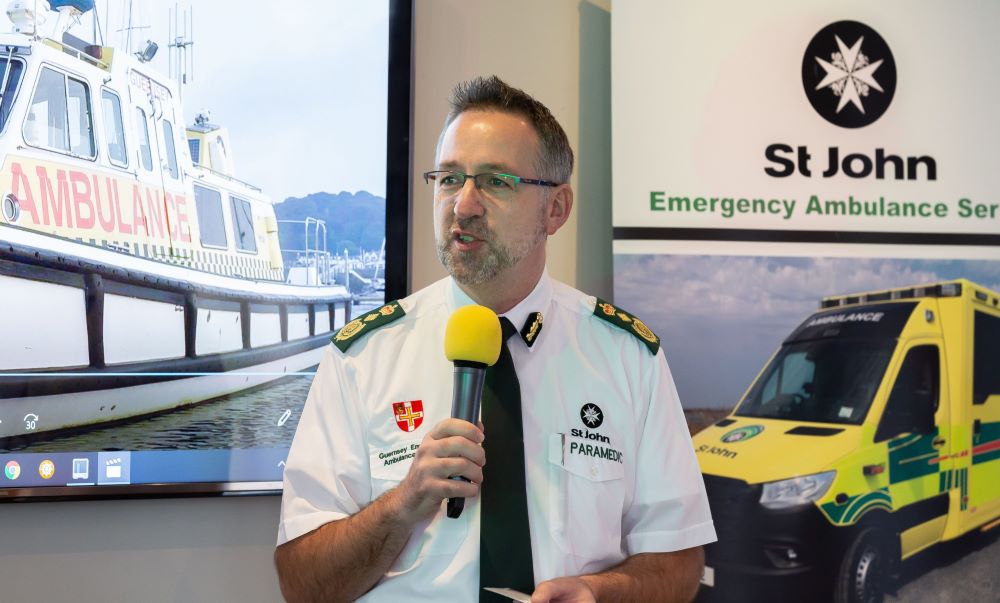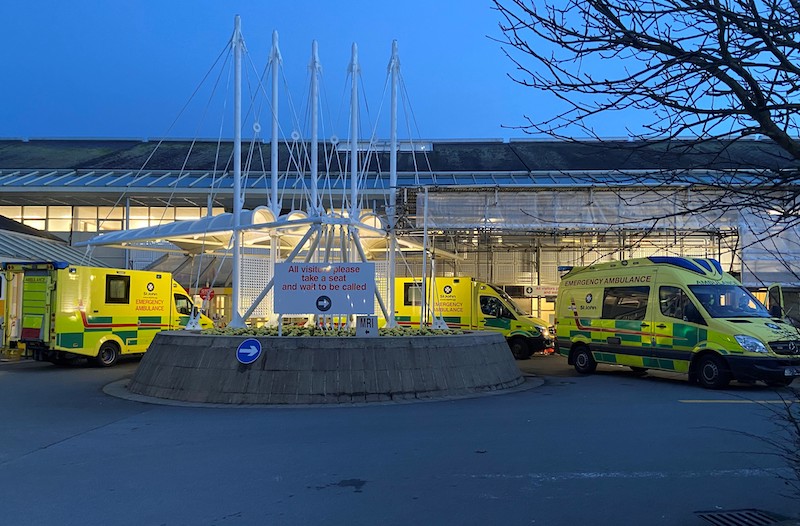


St John Ambulance Service has reassured islanders that it is continually meeting its response time targets after national news reported increased ambulance waiting times in the UK.
Chief Ambulance Officer Mark Mapp, said the Guernsey service, which has seen a nearly 50% increase in demand since 2015, is “one of the best performing services in the British Isles”.
“Although demand for Guernsey’s ambulance service has risen significantly in the past five years, we are not in the same position as the UK,” said Mr Mapp.
“The service is performing extremely well; we are consistently meeting our key performance indicators for response times and islanders are not experiencing the long waits for ambulances or long waiting times at the emergency department that are being seen in the UK.”

Pictured: The Joint Emergency Services Control Centre uses a triage system to allocate ambulances.
Last year the ambulance service responded to almost 7,000 calls, the highest number ever recorded.
Mr Mapp added: “The Emergency Ambulance Service has coped well with the increasing demand and a range of other external pressures. This is because we are a flexible organisation with the ability to adapt and we have a dedicated caring workforce and operate a voluntary call-back system with off-duty staff.
“Staff will often return to work day and night to provide cover during the peak periods of demand, which is not something that routinely happens in the UK.
“We also have well rehearsed contingency plans to deploy Senior Officers to operational duties at times of high demand and use St John volunteers to support our services.
“Like all organisations we are facing new challenges resulting from global events, which are increasing costs and pressures on the service, but we continue to work with Health & Social Care (HSC) and the wider Government to introduce new technologies and joint partnerships to further increase efficiencies while ensuring we endure to deliver excellent care.”
Mr Mapp said that a recent patient survey revealed that 93% of respondents were happy with the speed of the ambulance response.

Pictured: Chief Ambulance Officer Mark Mapp said the ambulance service has "coped well" with increasing demand.
The Joint Emergency Services Control Centre uses a triage system to allocate response times for emergency vehicles.
Category one calls, which are for immediately life-threatening incidents, have a target response time of eight minutes.
Category two calls also receive a blue lights and siren response, within 14 minutes, while category three calls, which are for less serious cases, have a response time of 30 minutes.
Category Four calls have a target response of two hours, but not all patients require transfer to the hospital.
“I would like to reassure islanders that if you need an ambulance you will get one,” said Mr Mapp.
In the first three months of this year, 25% of patients were discharged at the scene.

Pictured: Off-shift ambulance crew often return to work during peak periods to help ensure necessary cover is provided.
“Where it is appropriate and clinically safe, ambulance crews will assess and treat a patient at home, avoiding the need for an unnecessary trip to the hospital, which improves the patient experience, can contribute to a more positive patient recovery experience and reduces unnecessary pressures on the emergency department," said Mr Mapp.
“This also avoids delays for those people who do need treatment in hospital. This is all part of St John working in partnership with HSC.”
St John provides the ambulance service on behalf of the States of Guernsey through a grant from the Committee for Health & Social Care.
The grant is a contribution towards the operating of the service, with the remaining costs being met in a variety of ways including the subscription scheme.
Mr Mapp continued: “While we are not in the same position as the UK, we are watching the events in the UK with interest because by looking at what is happening there, we can learn lessons and plan ahead to avoid similar situations happening here.
“We are upskilling our workforce, investing in the future of the service and working with States to ensure the ambulance service is able to continue to meet the changing and increasing demands of the island.”
Comments
Comments on this story express the views of the commentator only, not Bailiwick Publishing. We are unable to guarantee the accuracy of any of those comments.